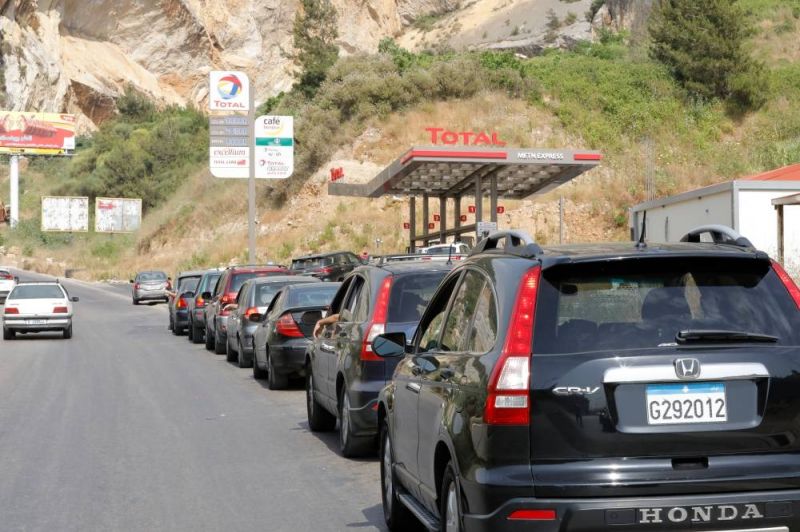
Fuel shortages persisted yesterday as the lira continued to tumble on the parallel market. (Credit: Marc Fayad)
Want to get the Morning Brief by email? Click here to sign up.
Lebanon is now set to receive 1 million tons of heavy fuel oil from Iraq — twice the amount originally agreed on — caretaker Prime Minister Hassan Diab’s office announced yesterday. The amount, approved by the Iraqi government on Tuesday, would cover about half the fuel needs of Lebanon’s public utility, Électricité du Liban. L’Orient Today’s sister publication Le Commerce du Levant previously reported that the fuel oil would be paid for in “lollars,” which would be kept in an escrow account at Banque du Liban and the Iraqi government could later use to purchase goods and services from Lebanon. The deal would therefore not be subject to payment delays being experienced by other essential goods importers that are awaiting BDL to release dollar payments for subsidized items. But while on its surface the deal could help alleviate Lebanon’s power blackouts by providing power plants with desperately needed fuel, experts have warned that Iraqi fuel does not match the plants’ specifications and could pose health and environmental risks for residents.
The lira slipped more than 7 percent on the parallel market yesterday, closing in on its record low. Exchangers on Wednesday were buying dollars for LL14,650 and selling them for LL14,700, according to online tracking platforms. The drop amounts to a devaluation of almost 90 percent compared with the lira’s official exchange rate of about LL1,500. The national currency briefly traded at a record low of LL15,300 in March. This latest fall comes amid uncertainty in the state’s financial and monetary systems, which is underlined by prolonged gas shortages and electricity blackouts due to the central bank’s alleged failure to pay out invoices for subsidized goods. The state, bereft of an empowered cabinet to implement large-scale economic reforms, seems ill poised to restore any economic confidence. Even the long-awaited capital control law inching its way through Parliament is toothless without a government, officials told L’Orient Today.
The caretaker health minister yesterday inaugurated the country’s largest COVID-19 vaccination center. The center, located in City Mall on the outskirts of Beirut, will be managed by the Lebanese Red Cross, Hamad Hassan said in a statement, adding that he hoped the center would invigorate Lebanon’s vaccination drive, which has until now been lackluster. As of Wednesday, only 12.1 percent of adults had received a single shot, while just 6.3 percent were fully vaccinated. The City Mall “mega-center,” which will operate in parallel to the hospitals providing jabs, aims to host up to 5,000 individuals a day. Its opening took place ahead of this weekend’s vaccination “marathon,” when all residents aged 55 and older as well those with disabilities will be eligible for a walk-in Pfizer vaccine, provided they are registered on the Impact platform.
France’s armed forces ministry announced that it will convene a virtual conference for donor countries later this month to draw in support for the Lebanese Army. The conference, set for June 17, will target aid such as food, medical supplies and spare equipment parts, two diplomatic sources told Reuters. It will not seek weapons or military hardware donations. This is the second time in less than a month that France has stepped in to support Lebanon’s armed forces, which like other Lebanese institutions have been rendered vulnerable by the country’s economic crisis. Paris provided food and medical supplies to army personnel last month after army commander Gen. Joseph Aoun reportedly warned top French officials, including President Emmanuel Macron, that military salaries had decreased by five or six times in value, forcing personnel to work side jobs.